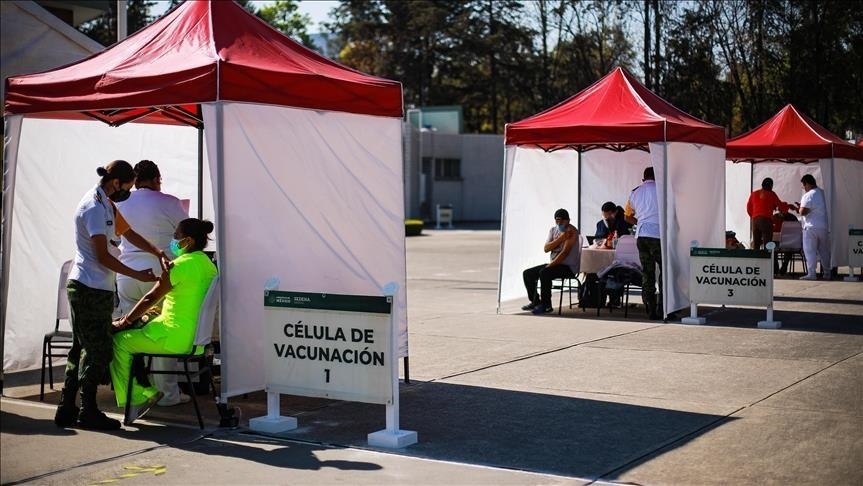Why Chile breaks vaccination and infections records?
Experts say excessive triumphalism due to successful vaccination campaign led people to spread virus during vacations
 File Photo
File Photo
BOGOTA, Colombia
While countries in Latin America have been slow in carrying out their vaccine campaigns, Chile’s roll-out strategy has proven to be one of the best in the world. It would seem that the country is beginning to turn the COVID-19 page if it were not for the fact that there are more daily coronavirus infections than ever before.
Chile is facing the worst moment in the pandemic with more than 8,000 daily infections in the last few days and intensive care bed occupancy at 95 percent. The South American nation has one of the highest per capita COVID-19 infection rates in the world. It has so far registered more than one million total cases and nearly 24,000 deaths, according to the running tally of US-based Johns Hopkins University.
Surprisingly, cases are on the rise despite the country having one of the most successful inoculation campaigns.
In fact, Chile was the first Latin American nation to start its vaccination program. Delivering around 225,000 doses a day, the country has supplied vaccines to more than seven million people since Dec. 24. The nation is among the global leaders in vaccination only outpaced by Israel and the United Arab Emirates.
Claudia Cortes, vice president of the Chilean Society of Infectious Diseases, told Anadolu Agency that one of the secrets to country's vaccination success is its past experience with efficient vaccination programs.
“Our public health system was born as a result of the vaccination plans and in general the acceptance of vaccines in the country is very high,” she says.
Several months back Sebastian Pinera´s government secured vaccines by various suppliers before most countries did so. The country has ordered about 90 million doses from Sinovac, Pfizer and AstraZeneca, more than enough to immunize its 19 million citizens.
However, Cortes points out that the country's rapid vaccination campaign gave the people a false sense of security and contributed to a sharp rise in new infections and deaths.
“There was a certain triumphalism when vaccination started and although vaccination is going very well in Chile, one cannot conclude that a vaccine will be the end of our problems,” she says. “We know that vaccination is only effective when 80 percent of the population is vaccinated and that is a long way off.”
The expert says the government eased restrictions “excessively” after imposing very strict quarantines. In January, the country created a permit system for Chileans to go on their summer vacation that goes from December to March.
“After many months of restrictions, curfews and quarantines, the government relaxed the measures excessively, giving vacation permits to more than five million people, who moved around the national territory causing the virus to spread.”
The health minister acknowledged in March that the risks of taking the summer vacation were not effectively communicated to the people.
Cortes warns that the country is now facing new strains of the coronavirus, which are more contagious and cause more severe disease.
“We don't know how widespread new strains are but we believe they are quite widespread because the virus behavior has been much more aggressive. We are starting to see serious cases among younger people who are being hospitalized,” she added.
The increase in cases triggered a new series of strict measures that have restricted the mobility of nearly 14 million people.
Earlier this week, Chile closed its borders to non-resident foreigners and prohibited travel abroad for at least a month.


